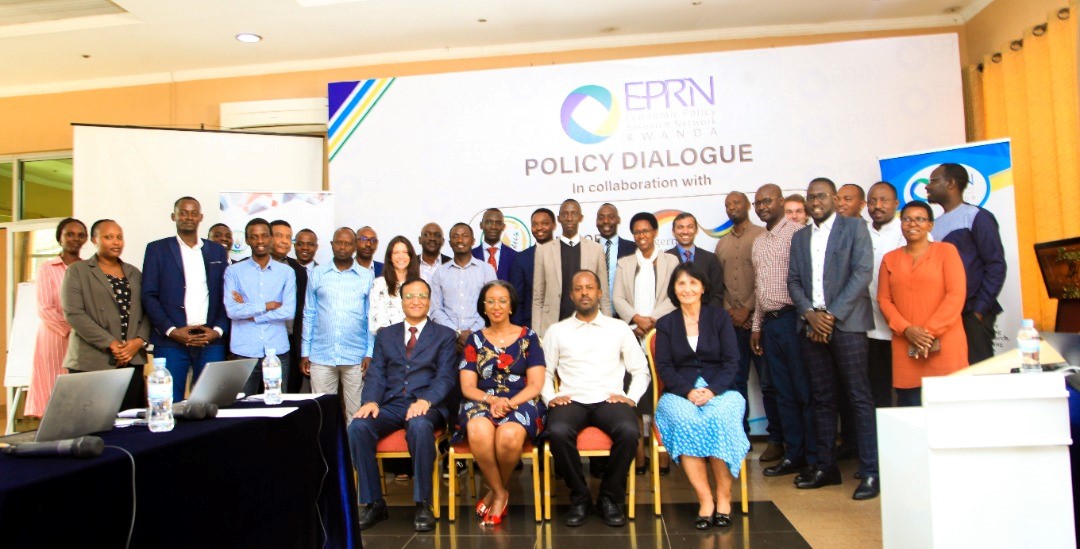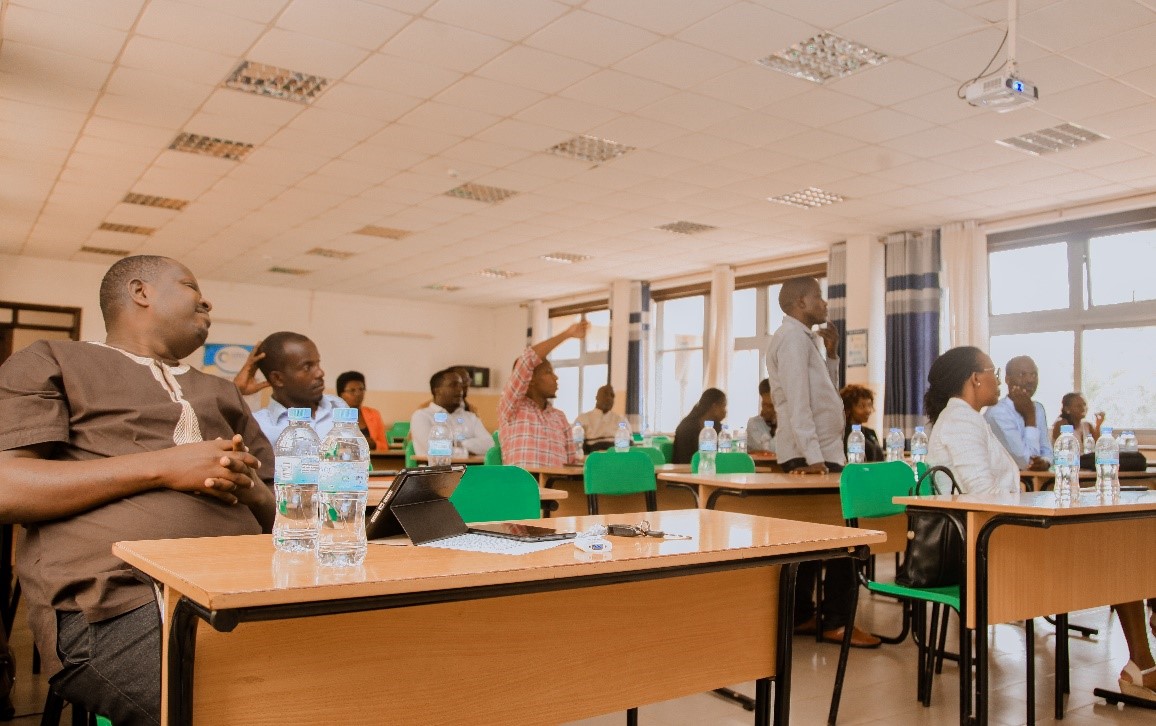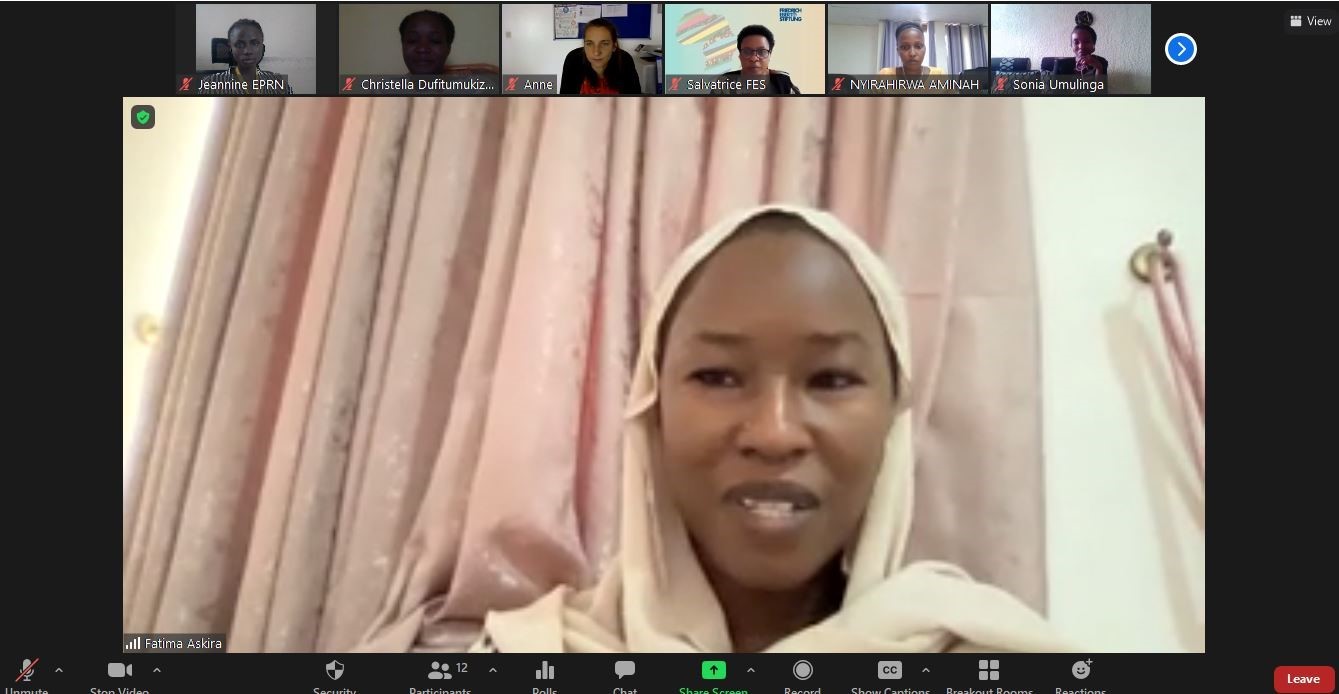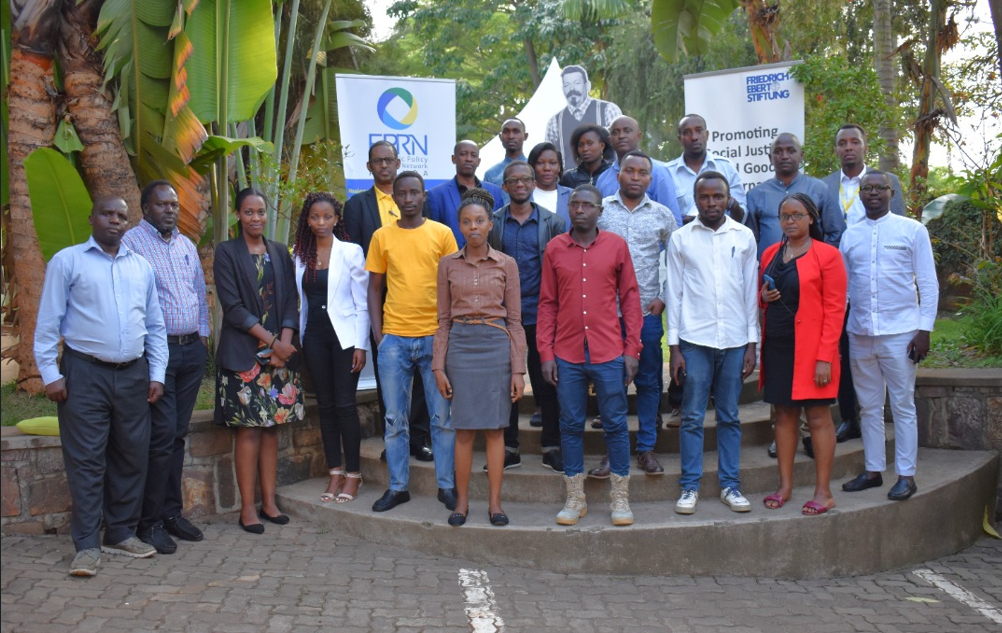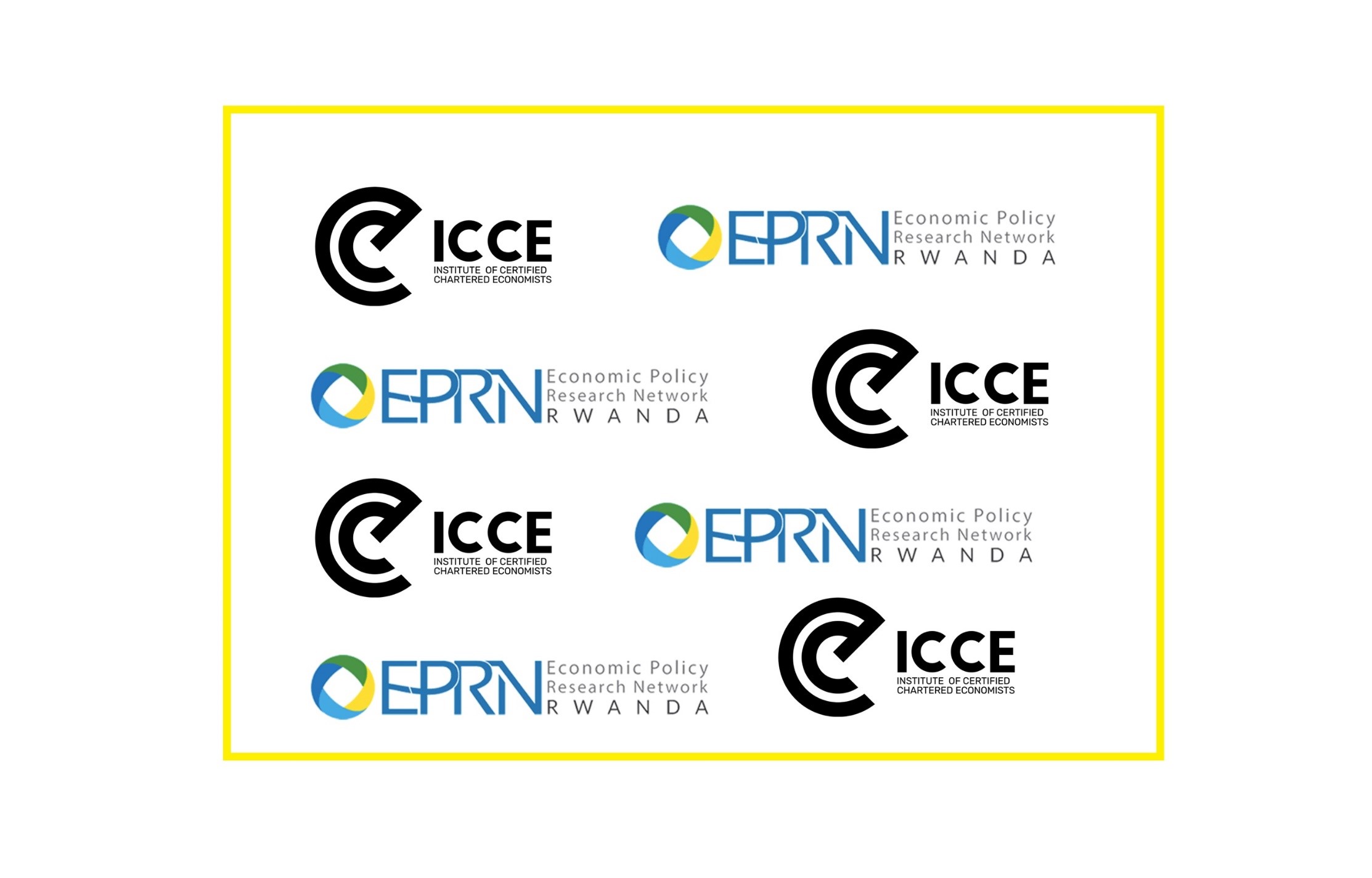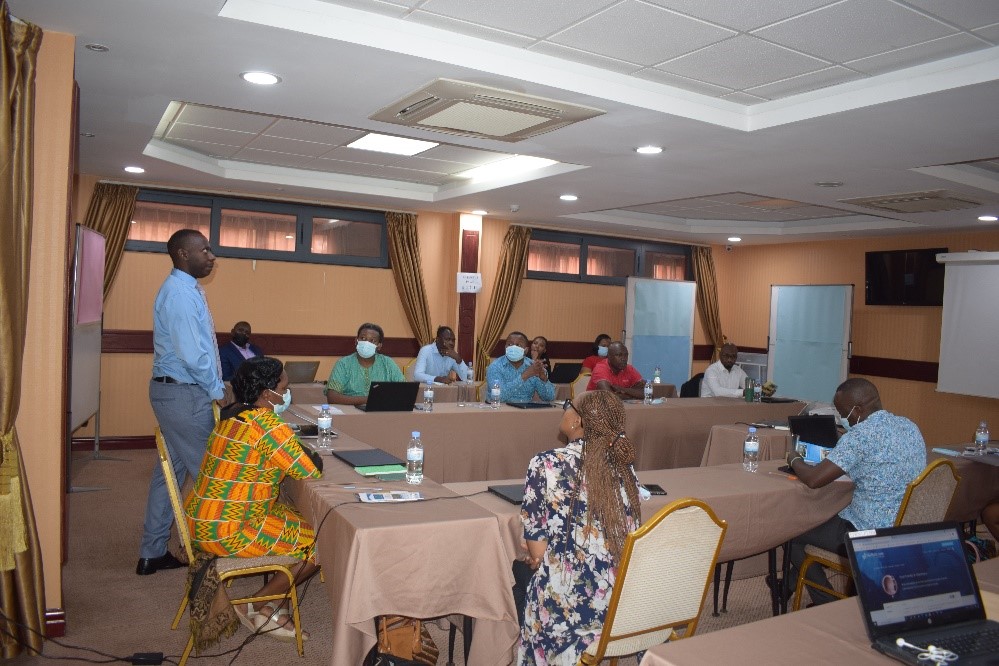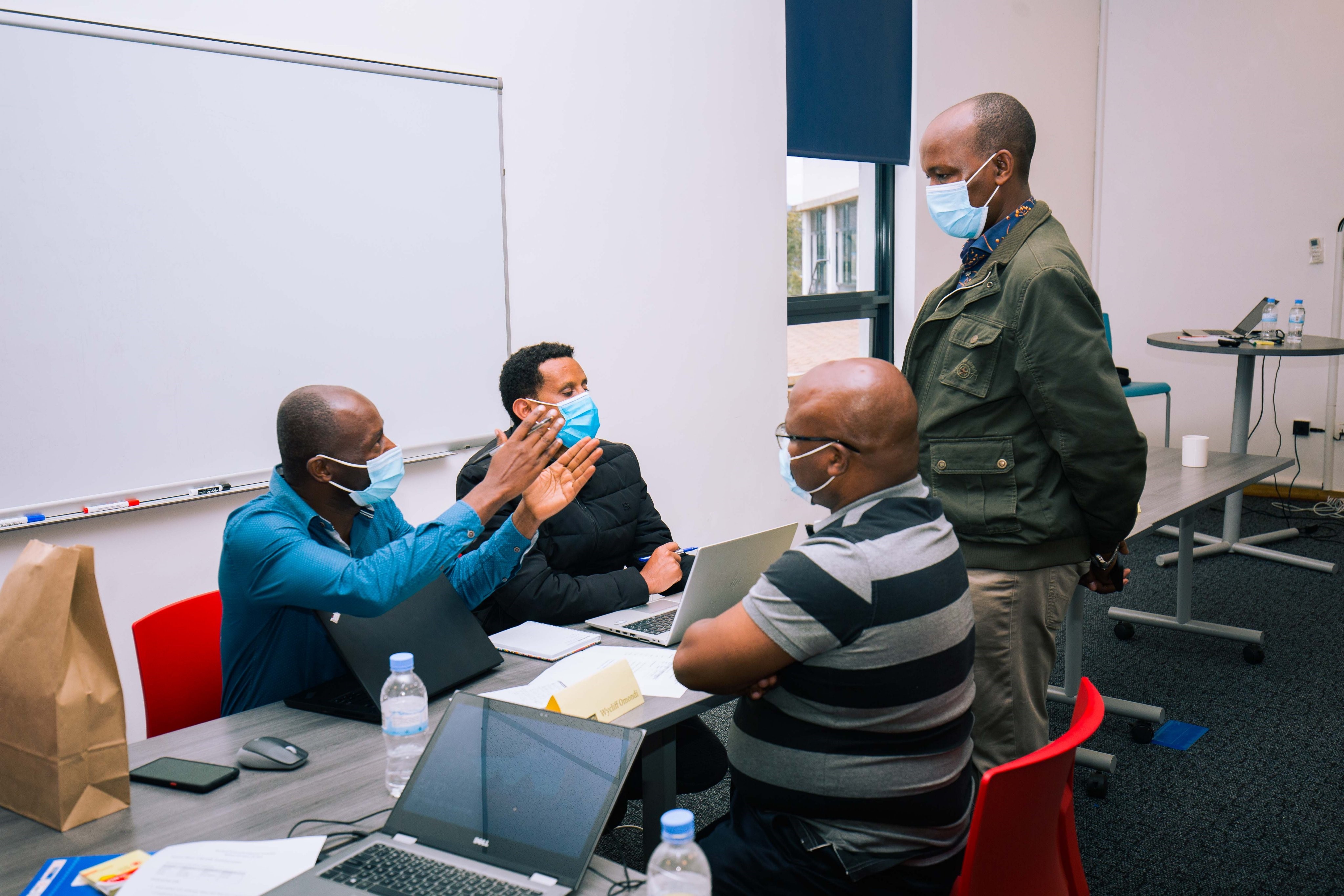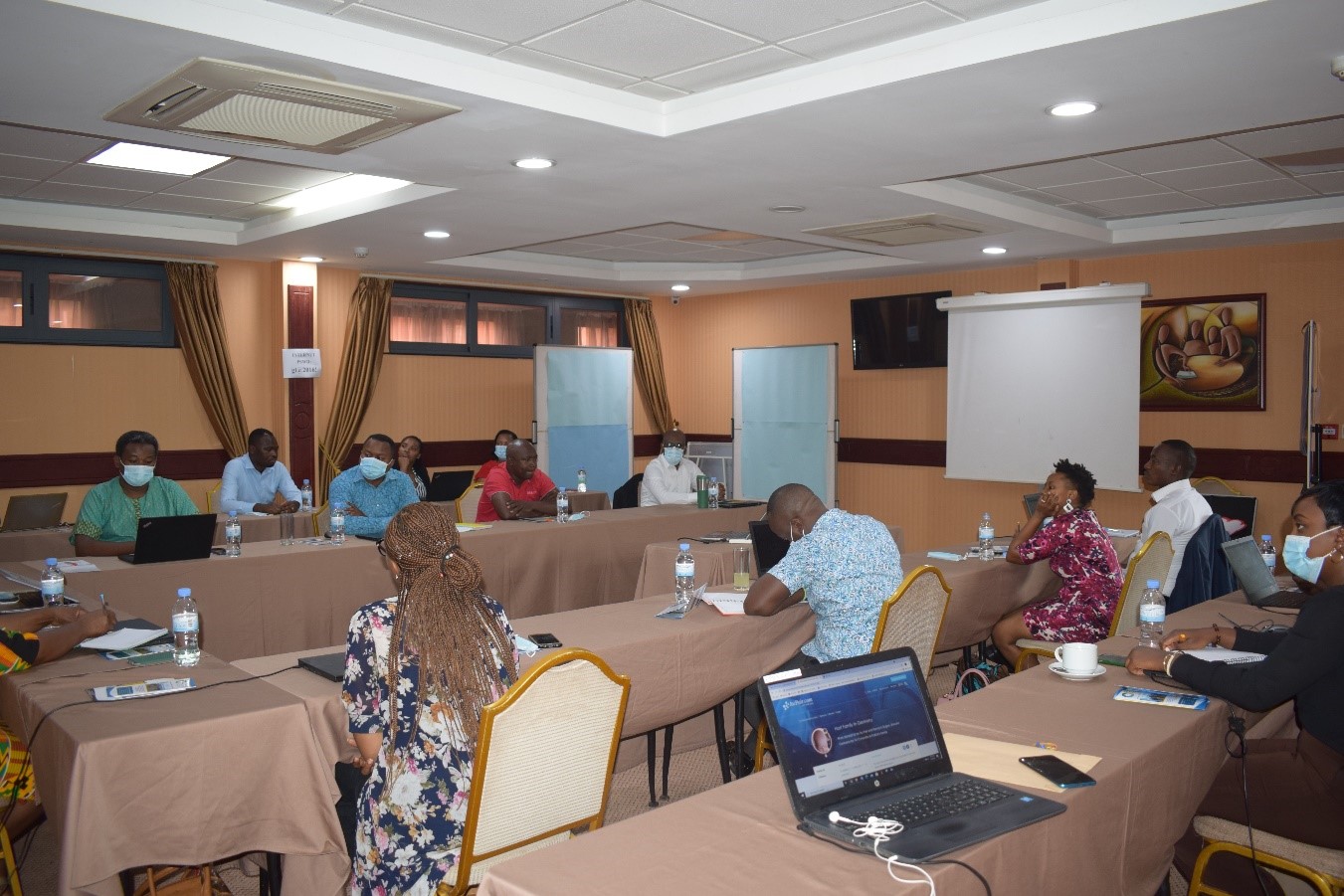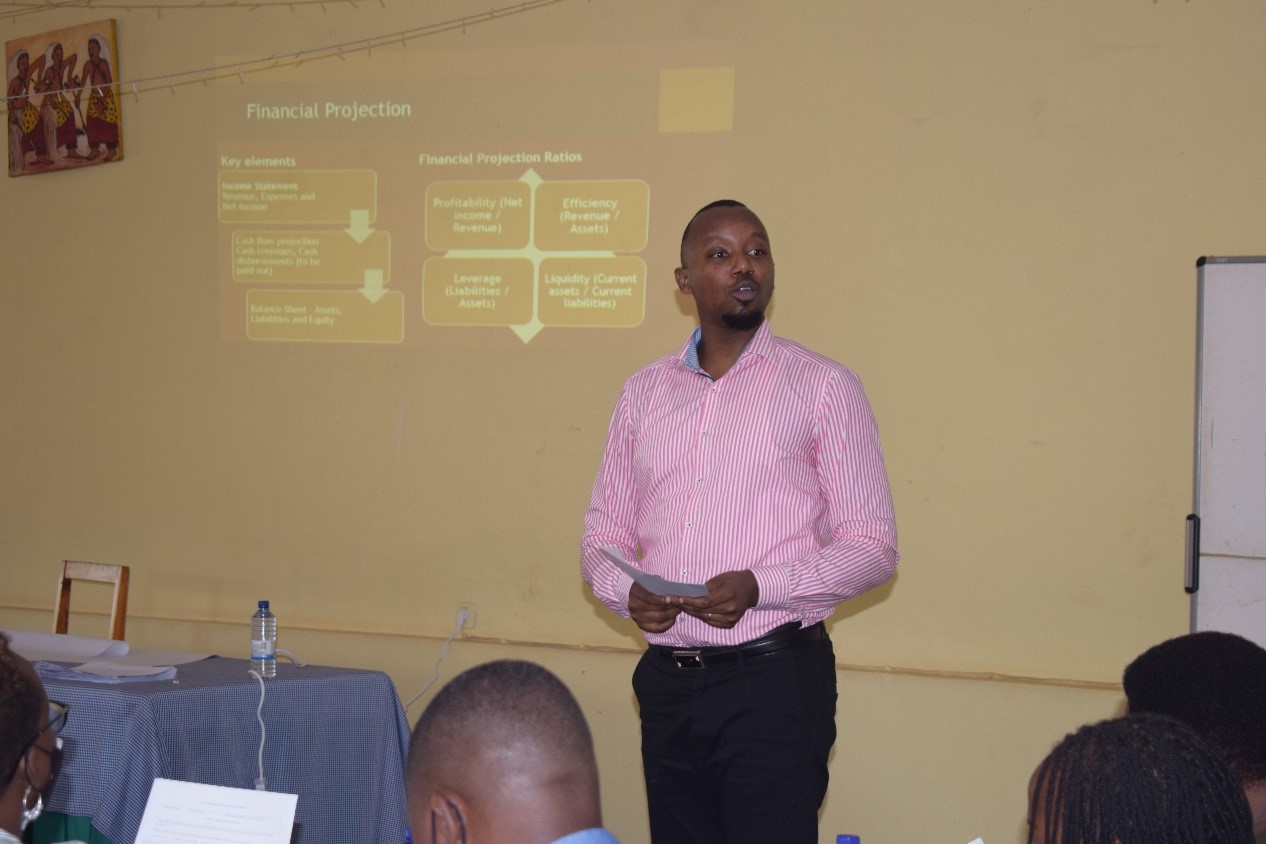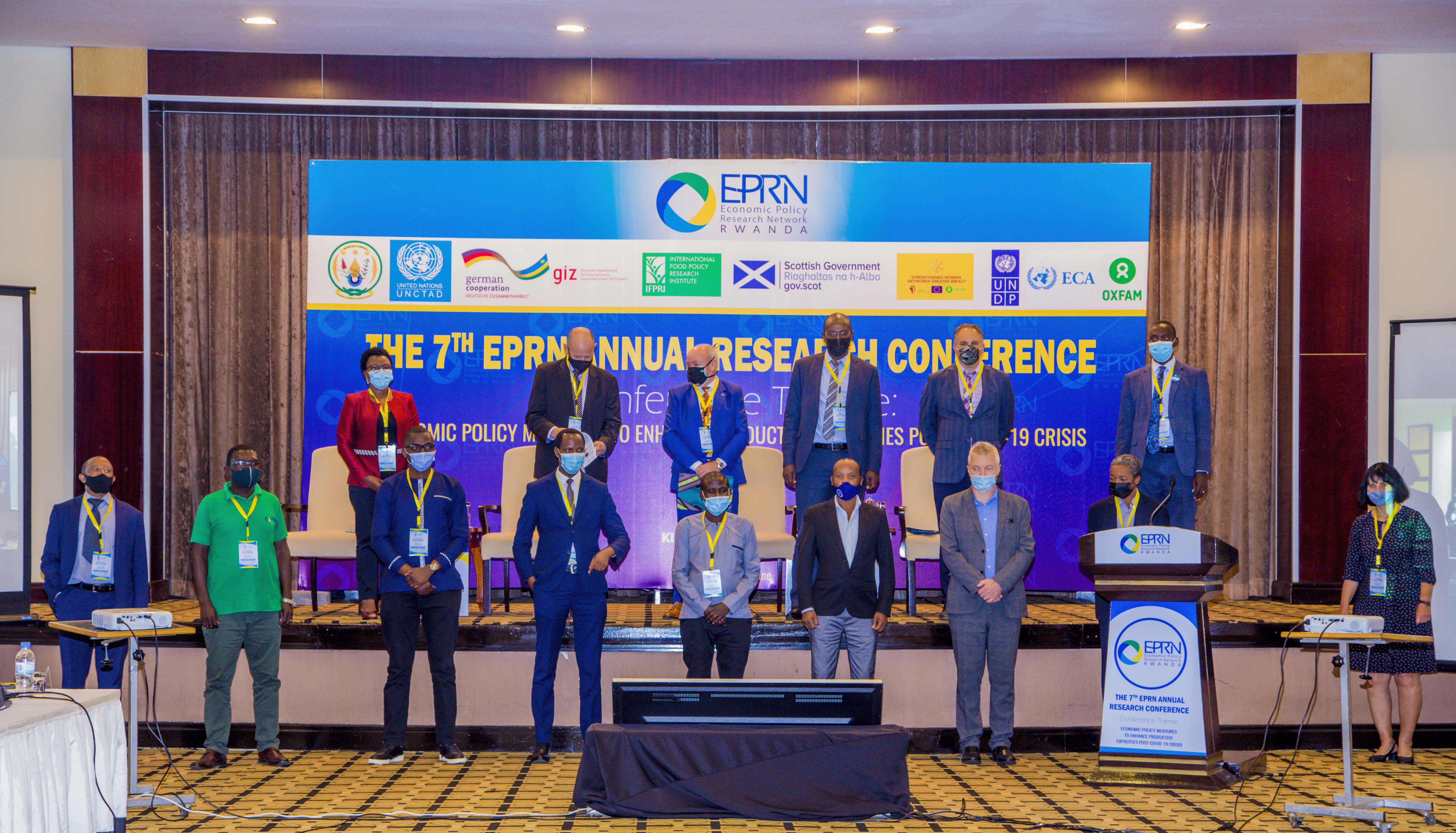SIX WEEKS AFTER THE COVID-19 CONFINEMENT : WHAT ARE THE SOCIO AND ECONOMIC PERSPECTIVES FOR EAST AFRICA
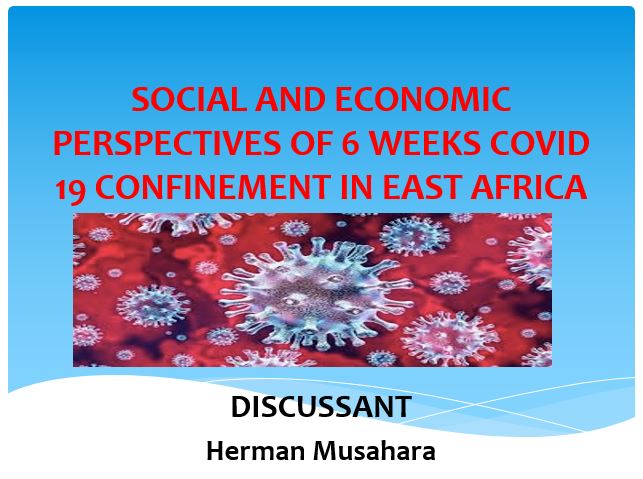
1. Introduction
On Wednesday 29th of April 2020, the Economic Policy Research Network in partnership with the Friedrich Ebert Stiftung (FES Rwanda) hosted a digital policy breakfast about the Economy and Regional Integration. The digital policy breakfast sought to engage participants in discussions centered on the topic “Six weeks after the Covid-19 confinement : What are the socio and economic perspectives for East Africa”.
This is part of a series of policy debates organized by EPRN in partnership with FES. Discussions are mainly to link economic questions with social protection and good governance, inform policy makers and journalists on different topics related to Regional Integration and Economy, increase the awareness on international relations dynamics, etc. The sessions take form of a moderated discussion with a lead speaker presenting about a certain topic and includes Q&A session, comments more insights from audience.
2. Attendance
The digital policy breakfast was attended by 50 participants from economic research community, FES Rwanda partners, individuals from public institutions like universities and ministries private institutions, civil society organizations and journalists. Participants fully engaged in the discussions because the event allocated enough time for reactions, comments.
3. Event Highlights
Unlike previous numerous Friday breakfast sessions jointly organized by EPRN and FES which are usually physically hosted at FES ; this session was held virtually due the current situation caused by the COVID-19 Pandemic which has led to lockdown of most public and private gatherings hence making a digital event inevitable and suitable to convene discussions. The event was hosted via zoom, a video conferencing software.
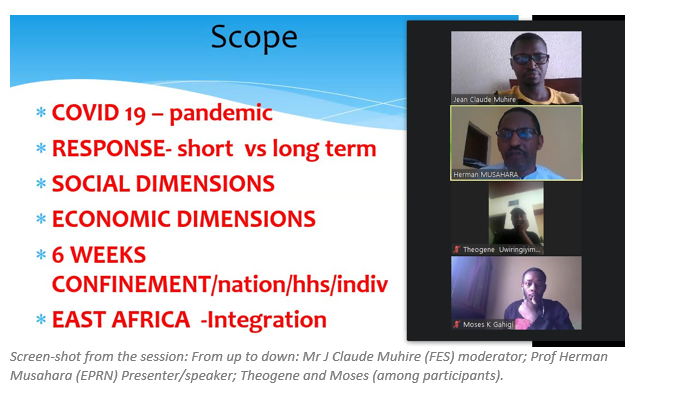
The discussions were led by Professor Herman Musahara, a Development Economist who is also one of EPRN senior researchers and moderated by Jean Claude, the Program Coordinator at FES Rwanda. Professor Musahara focused on socio and economic perspectives of the six-weeks confinement due to the Covid-19 pandemic. He highlighted the scope of impact the pandemic is having on the East African region in terms of socio and economic dimensions, long and short term responses employed due to the Covid-19 pandemic, confinement on different levels (national, household and individual). Musahara went deep to explain how the pandemic affected the social status of the economies in the region in regards to different aspects such food consumption, social consumption, the increased use of social media, social travel, and culture like hygienic practices, social distancing and increased poverty. He also highlighted medical shocks that were evident in the period pf the six weeks of the pandemic sighting aspects of mortality, fatality, infection, recovery from the infection among others.
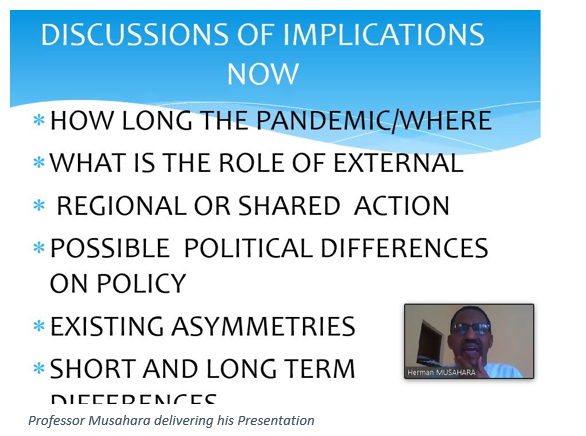
Professor Musahara also highlighted the economic perspectives of the six-weeks confinement sighting the aspects of demand shocks where there was increased demand for medical, sanitary and food materials which also had a huge effect on supply response. He also touched on the exogenous effects which are mainly caused by external forces and result from direct trade links between the East African member countries. He also touched endogenous effects which linked to mortality and morbidity and lead to disruption of economic activities like decrease in domestic demand in tax revenue due to loss of oil and commodity prices. Professor also highlighted different aspects of the economy to be heavily affected by the six-weeks confinement such as industry and business, taxation, tourism, trade imports and exports, foreign direct investment and local investment, employment, monetary policy, debt, bank, etc.
Professor Musahara concluded the presentation with a series of questions to trigger reactions, questions and comments from the audience. The most prominent questions included :
- What is the level of awareness of the pandemic and degree of response ?
- What are strategies for the post confinement period ?
- What are the asymmetries in response at global, regional, (RECs) and national ?
- What are lessons we draw from a pandemic at all levels ?
- How socio economic data on the COVID-19 discourse be obtained and used by professionals like journalists ?
4. Policy recommendations to EAC region
Based on presentation made by the speaker, and brainstorming sessions, the following key policy recommendations have been made as outcome of the dialogue :
4.1 To EAC and Member States
a. The COVID-19 is a global pandemic thus there is needs to have a unified response to the pandemic as it knows no borders. Mechanisms to strengthen collaboration as a region needs to be high priority agenda
b. The pandemic emphasizes the need for harmonized policies and responses to disaster and pandemics
c. Data is required for the medical and health aspects but it is also required for the socio economic and economic impacts. The EAC needs to collaborate more closely in mobilizing resources for immediate response but also for research and awareness building of the effects of the pandemic especially among the most vulnerable areas and people
d. Cross border trade is greatly affected by the pandemic. A policy to support its revival in the pandemic periods and after
e. Rapid and quick responses of each country are good for the rest of the community members. Mechanisms and platforms to even out asymmetries in responses and their effects crossing borders need to be set up
4.2 To Private sector in member states
a. Private sector is at the front line of the fight of the pandemic. In tourism, transport, trade and banking to mention but a few. Governments of member states need to devise common and national policies of how to assist affected people and firms
b. EAC should devise financing mechanisms that will assist in stimulating the community wide business and the private operators in particular
5. Conclusion
Basing on the response from the evaluation forms submitted by participants, a huge percentage of the participants were satisfied with the format of the event organization pointing out that it facilitated full participation of the audience in discussions and also convenient for the current situation of confinement due to the Covid-19 Pandemic.
EPRN Rwanda in collaboration with FES Rwanda would like to thank all participants that managed to join and contribute to the discussion convened in the digital policy breakfast.
EPRN will continue to contribute in addressing the existing capacity gaps in economic policy research and analysis in Rwanda through research and creating platforms to facilitate discussions around economic issues through dissemination events and policy dialogues as we continuously seek to contribute to economic development and growth of our economy.
Download the Presentation made by Prof Musahara
Doc 1




